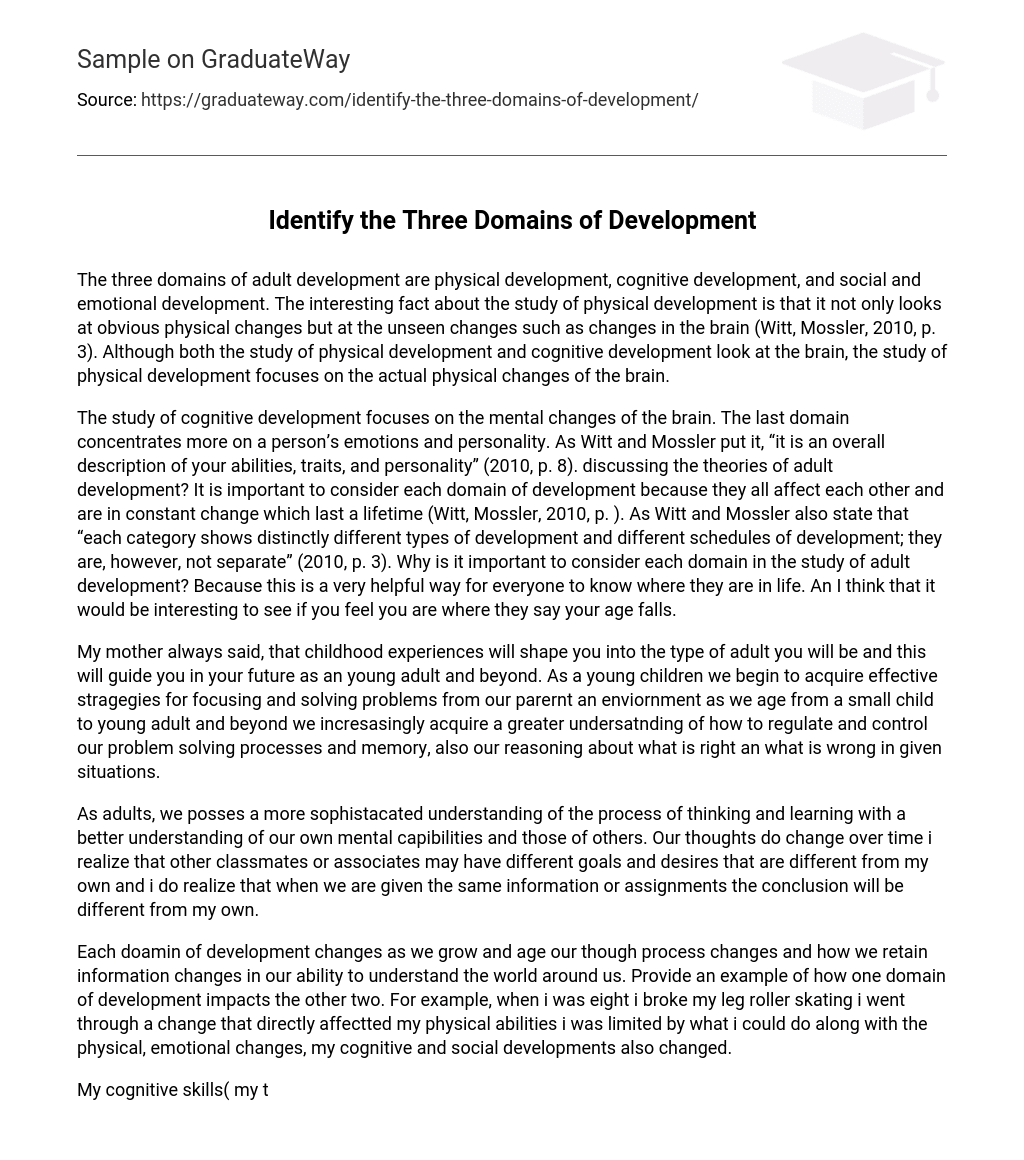The study of adult development involves three domains: physical development, cognitive development, and social and emotional development. Physical development encompasses both noticeable physical changes and unseen changes within the brain (Witt, Mossler, 2010, p. 3). While both physical development and cognitive development examine the brain, the former specifically examines the actual physical alterations of the brain.
The study of cognitive development focuses on changes in the brain related to mental processes, while the last domain focuses on a person’s emotions and personality. According to Witt and Mossler (2010), this domain includes abilities, traits, and personality. It is important to consider each domain of adult development because they all influence one another and change throughout a lifetime (Witt, Mossler, 2010). Additionally, Witt and Mossler emphasize that although each category has different types and schedules of development, they are interconnected (2010). Examining each domain in the study of adult development is crucial because it provides insight into one’s current life stage and allows individuals to assess if they align with age-related expectations.
My mother believes that our experiences in childhood greatly impact the type of adult we become and influence our future as young adults and beyond. During our early years, we acquire effective strategies for concentrating and resolving issues from both our parents and environment. As we age, we develop a heightened comprehension of how to manage and direct our cognitive processes, memory, and moral reasoning in various circumstances.
As adults, we have a more sophisticated comprehension of the thinking and learning process. We also understand our own mental abilities and those of others better. We acknowledge that our thoughts evolve over time and that our classmates or colleagues may have different aspirations and desires than us. Moreover, we understand that their interpretations or outcomes might differ from ours when presented with the same information or tasks.
As we get older and grow, our development in all aspects undergoes transformations. This includes changes in our thinking process, memory retention, and understanding of the world. An incident from my childhood illustrates how alterations in one area can impact the other two. At the age of eight, I fractured my leg while roller skating. This physical change had a direct impact on my abilities and limitations. Moreover, it triggered emotional shifts that affected both my cognitive and social progress.
While trying to compensate for my limited physical abilities, I observed an improvement in my cognitive skills related to thinking and reasoning. However, the experience of having a broken leg and being unable to leave the house had negative effects on both social and emotional development. I experienced significant mood swings and intense emotions because I couldn’t play or socialize with friends. The period of six to eight weeks spent only on home schooling was particularly difficult. Breaking a leg not only affects physical capabilities but also has consequences for cognitive and social development. People may see improvements in their cognitive skills as they try to overcome the limitations caused by the injury, but their social and emotional growth may suffer due to prolonged confinement in a cast.





